Blocks are pretty amazing, they can provide hours of entertainment and come with endless possibilities for creative minds. I’ve shared before ways to play with Lego blocks, but since we started homeschooling, I’m finding all sorts of new ways to use Legos in teaching math to my girls (and the Legos I already have are a lot cheaper than the stacks of manipulatives I could by from the school supply catalogs I get in the mail!)
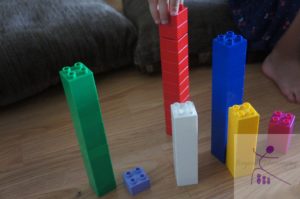
Here are 8 math concepts I teach using Legos:
Sorting: have your child sort the blocks by color, shape and/or size.
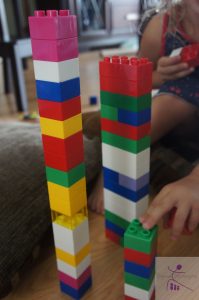
Comparison: stack them up and use the stacks to discuss height (taller/shorter); length (longer/shorter); same and different; more or less.
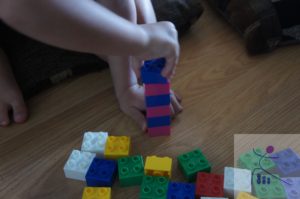
Patterns: ask your child to make a pattern with the blokcs using 2, 3, 4 or more colors and/or start a pattern and have your child place the block(s) that come next in the pattern.
Counting: put out a few (or a pile) of block and have your count how many (for lower numbers, see if they know the number without counting).
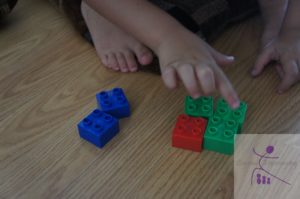
Addition: place two sets of blocks and ask how many in each set and how many all together.
Subtraction: place a set of blocks, have your child identify the number then take some away and ask “what is __ minus __?”
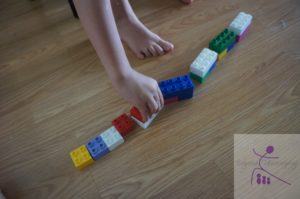
Skip Counting: use the bigger blocks to count by 2s, 5s, 10s, etc. and model (for example, use a block twice as big to cover two smaller blocks to show how you’re counting by twos).
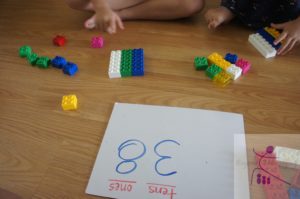
Place value: assign blocks of a certain size as “ones”, another as “tens” (roughly ten times bigger than the “ones” blocks) and another as “hundreds” (I use the flat bases). Ask your child to model numbers (say and/or write the number) starting with single digit numbers using the “ones” blocks then two digit numbers using the “ones” and “tens” blocks then three digit numbers with all sets of blocks. Have your child count the blocks after modeling, “10, 20, 30, 31, 32, 33, 34.” You can also reverse the thinking by modeling a number with the blocks and having the child count out, say and write the number.


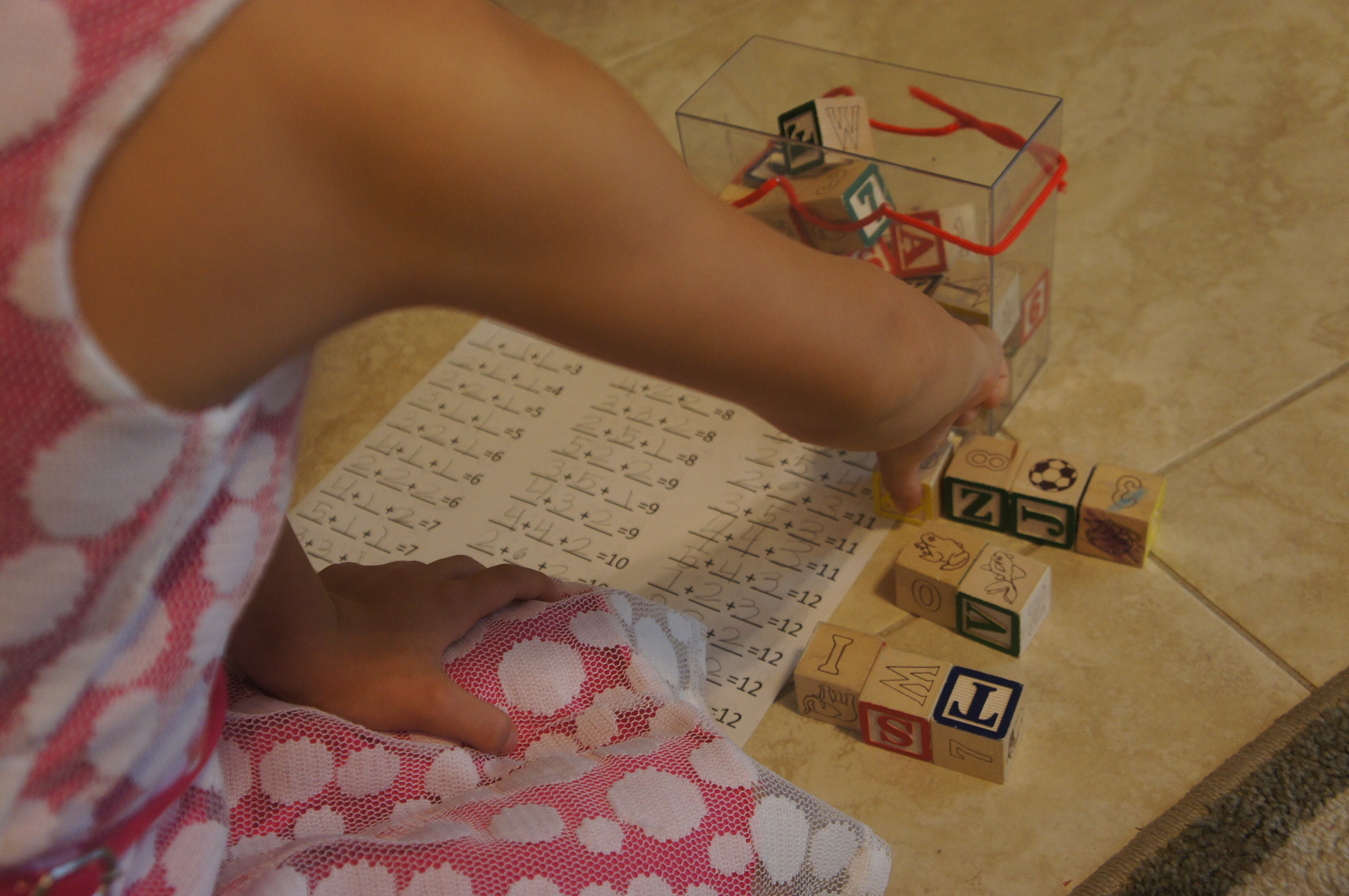
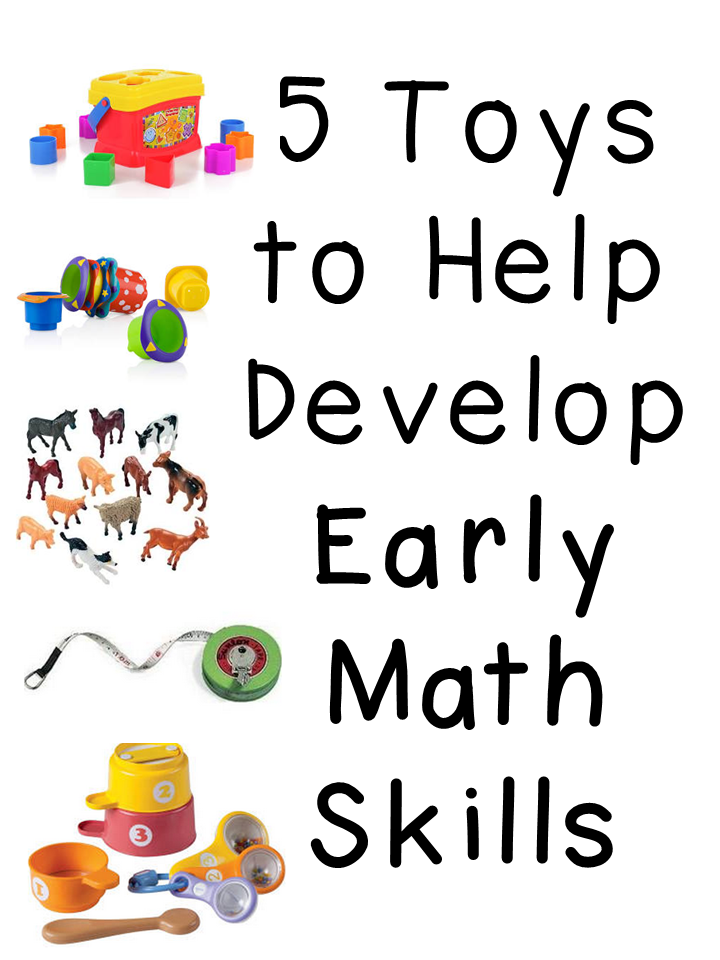
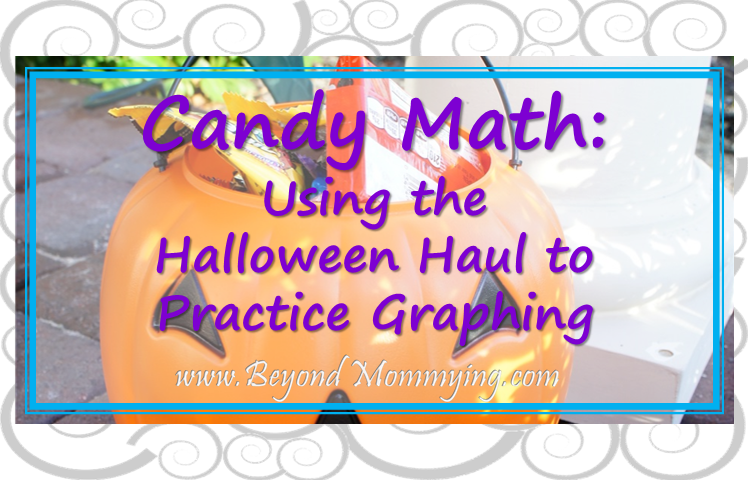
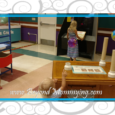

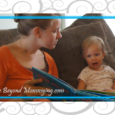

They are wonderful for learning fraction.
You’re right, Luanne! We aren’t there yet but I’m sure we will use them when we get to fractions (and I’ll have to add it to the post as well!)